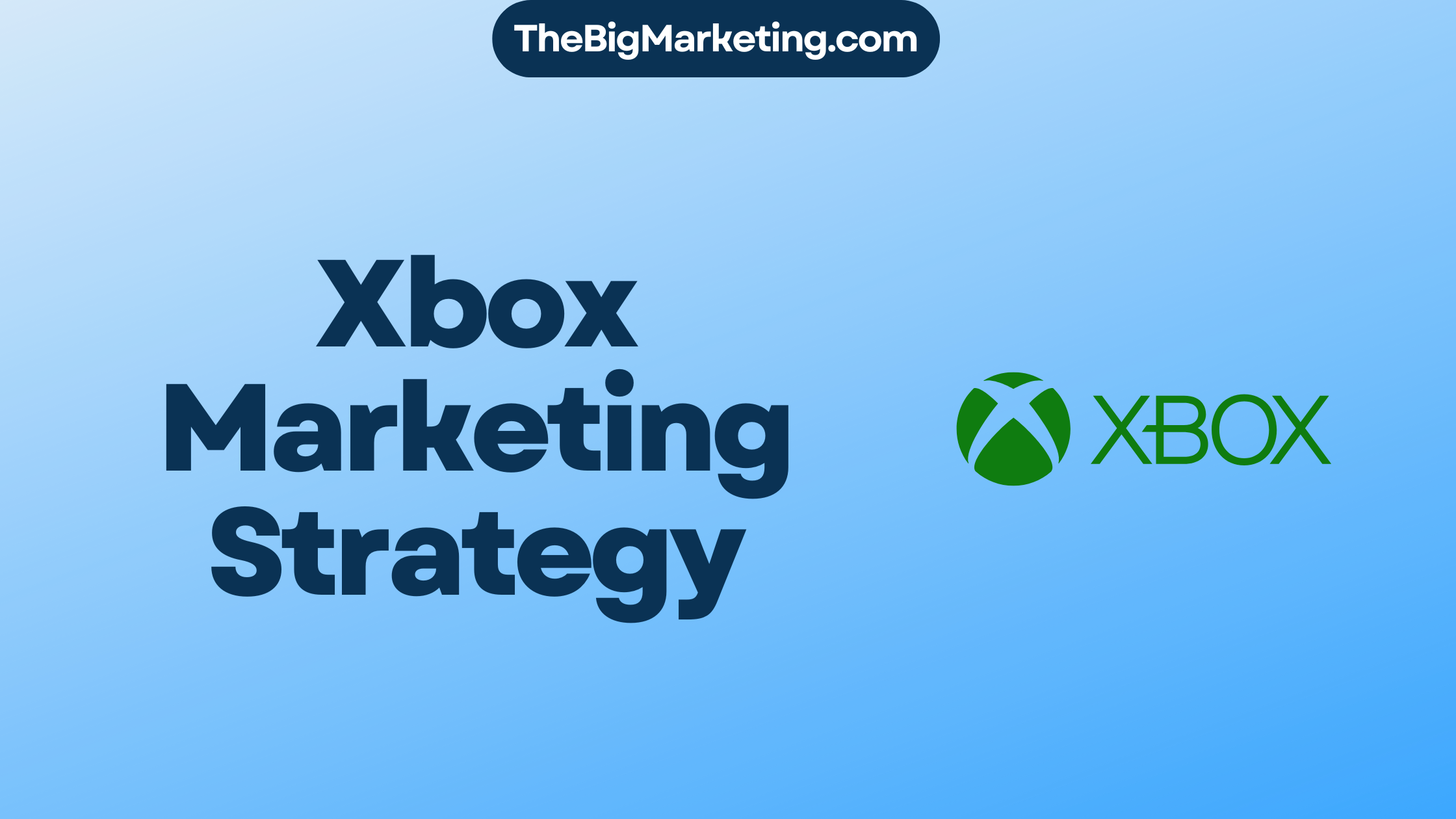Peloton, an American fitness company, has become a pioneer in the home fitness industry, thanks to its innovative marketing strategy. In this case study, we will dive deep into Peloton’s marketing tactics, including their SWOT analysis, marketing campaigns, and social media presence. Let’s explore how Peloton has successfully positioned itself in the market and captivated the hearts of fitness enthusiasts.
Key Takeaways:
- Peloton’s marketing strategy has played a significant role in their success in the home fitness industry.
- They have built a strong community of like-minded individuals who connect through their products and services.
- Peloton focuses on personalized experiences and constantly updates their offerings to cater to customer needs.
- The company maintains a strong digital presence and utilizes social media to engage with their audience.
- Content creation is a vital part of Peloton’s marketing strategy, with their proprietary film studio producing original content regularly.
About Peloton
Peloton is a renowned fitness company that was founded in 2012 and launched in 2013. It operates as an exercise equipment and media company, providing a wide range of home workout solutions to fitness enthusiasts. Peloton’s offerings include high-quality bikes, treadmills, an interactive app, and classes to help users achieve their fitness goals from the comfort of their own homes.
At Peloton, the primary focus is to connect individuals with their fitness aspirations through technology-driven solutions and personalized features. The company has gained popularity as a leading provider of home fitness equipment and has established a strong presence in the industry.
With Peloton’s innovative approach to fitness, users can enjoy engaging and immersive workout experiences without leaving their homes. The company’s commitment to excellence and dedication to helping people reach their fitness potential have made Peloton a trusted and popular choice for fitness enthusiasts worldwide.
Peloton Marketing Strategy
Peloton, the leading fitness company, has implemented a comprehensive marketing strategy to propel its success in the home fitness industry. By emphasizing the unique features and benefits of their products, Peloton has successfully attracted a dedicated customer base. Additionally, they have recognized the potential of the boutique fitness trend and strategically built a community of like-minded individuals.
One of Peloton’s key marketing tactics is their constant service updates and incentives to encourage customer sign-ups. They understand the importance of staying relevant and continuously improving their offerings to meet the evolving needs of their target audience.
Peloton’s digital marketing efforts have played a crucial role in their success. They maintain a strong digital presence through their website, social media platforms, and online advertising campaigns. By showcasing real people using their products, Peloton effectively demonstrates the value and impact of their offerings.
To further engage with their audience, Peloton utilizes digital marketing techniques such as email marketing, content creation, and influencer collaborations. These strategies help them reach a wider audience and create a genuine connection with their customers.
Peloton Marketing Campaigns
| Campaign | Description | Impact |
|---|---|---|
| “We All Have Our Reasons” | A campaign featuring real members sharing their Peloton experiences and stories. | Inspired and motivated potential customers, showcasing the diverse benefits of Peloton. |
| Christmas Ad Controversy | A controversial ad that faced backlash but ultimately sparked conversations about the brand. | Generated significant media attention and increased brand awareness (despite initial negative sentiments). |
| Instructor Collaborations | Collaborations with influential fitness instructors and celebrities, leveraging their social media presence. | Expanded their reach and attracted new audiences through partnerships with well-known figures in the fitness industry. |
Peloton’s marketing strategy continues to evolve as they adapt to the changing landscape of the fitness industry. By staying innovative, customer-focused, and leveraging digital marketing channels, Peloton has solidified its position as a leading brand in the home fitness market.
Peloton’s SWOT Analysis
Peloton, as a prominent player in the home fitness industry, possesses several strengths that contribute to its success. One of their key strengths lies in the high-quality products they offer, which are meticulously designed by professional bicyclists. Additionally, Peloton’s fitness equipment is equipped with advanced technology that enhances the overall workout experience for its users.
However, Peloton is not without weaknesses. The company has encountered challenges in branding and marketing, struggling to effectively communicate their brand identity and value proposition to the target audience. Furthermore, organizational and management issues have hindered their growth and operational efficiency.
Despite these weaknesses, Peloton has identified numerous opportunities for expansion and growth. With its strong foothold in the home fitness market, Peloton has the chance to penetrate various industries and markets. There is immense potential for diversification and partnership collaborations to further enhance their offerings and reach a broader customer base.
Nevertheless, Peloton also faces threats from competitors who are continuously striving to gain market share in the fitness industry. The rise of new entrants and the potential for market saturation are challenges that Peloton must navigate. Additionally, the company has limited control over its partners and suppliers, which could impact their supply chain and product availability.
To summarize, Peloton’s SWOT analysis provides insights into the company’s strengths, weaknesses, opportunities, and threats. Understanding these factors is crucial for determining effective strategies that can capitalize on strengths, address weaknesses, seize opportunities, and mitigate threats.
Peloton’s Marketing Campaigns
Peloton, a leading fitness company, has executed impactful marketing campaigns to promote its products and services. These campaigns aim to showcase the diversity and benefits of Peloton’s offerings, connecting with their target audience on a personal level.
We All Have Our Reasons Campaign
A notable marketing campaign by Peloton is the “We All Have Our Reasons” campaign. This initiative featured real members sharing their inspiring Peloton experiences, highlighting the positive impact the brand has had on their lives. The campaign effectively portrayed the sense of community and personal transformation that Peloton offers.
Peloton’s Christmas Ad Controversy
Peloton’s marketing journey also faced a significant setback with their Christmas ad controversy. The ad received backlash and criticism for what some perceived as unrealistic and tone-deaf messaging. As a result, Peloton experienced a temporary dip in stock value and negative publicity. However, it is important to note that controversies can present opportunities for companies to refine their marketing strategies and address consumer concerns.
Peloton has since acknowledged the importance of diversity and inclusivity in its marketing campaigns, learning from this experience and using it as a catalyst for growth and improvement.
Peloton Advertising Successes and Lessons
Despite the Christmas ad controversy, Peloton’s overall advertising efforts have yielded positive results, helping to drive brand awareness and customer engagement. By showcasing real people and their fitness journeys, Peloton has successfully connected with individuals seeking personalized fitness solutions.
Peloton’s marketing campaigns have demonstrated the power of storytelling and leveraging real-life experiences to create an emotional connection with their target audience. This approach goes beyond traditional advertising to foster a sense of community and motivation among Peloton users.
Overall, Peloton’s marketing campaigns have highlighted the importance of authenticity, diversity, and understanding customer needs, while also providing valuable lessons on how brands can navigate controversies and refine their messaging to resonate with their audience.
Peloton’s Social Media Presence
Peloton has established a robust social media presence, gaining a significant following across popular platforms such as Instagram, Twitter, and Facebook. Leveraging the power of social media, Peloton effectively engages with its audience and creates an interactive and appealing digital presence.
Through their social media channels, Peloton regularly shares valuable content, including tips and guidance from their talented team of instructors. This commitment to providing useful and informative content helps to foster a sense of community among Peloton users and keeps them engaged with the brand.
One platform that Peloton taps into for increased visibility and engagement is Instagram. They utilize features such as Instagram reels to share motivational and engaging content with their followers. By embracing the latest trends and features on Instagram, Peloton effectively captures the attention and interest of their audience.
Similarly, Peloton maintains an active presence on Twitter and Facebook, where they share updates about new workout classes, community events, and success stories from their customers. Regular updates on these platforms ensure that Peloton stays top of mind for their social media followers.
Overall, Peloton’s social media strategy focuses on building a community, providing valuable content, and fostering engagement. By leveraging the power of social media platforms like Instagram, Twitter, and Facebook, Peloton successfully cultivates a strong online presence and strengthens its connection with its audience.
The Importance of Brand Positioning
In today’s highly competitive market, brand positioning plays a crucial role in setting a business apart from its competitors. It involves identifying and leveraging the unique qualities and values that define a brand and resonate with its target audience. Effective brand positioning allows businesses to create a distinct identity, build customer loyalty, and drive growth.
Peloton, the innovative fitness company, understands the significance of brand positioning in capturing the market’s attention. They have successfully shifted their brand positioning strategy from a product-focused approach to emphasizing the experience and community aspect of their brand. By doing so, they have managed to differentiate themselves and create a strong brand identity.
One of the key elements of brand positioning is understanding what makes a brand unique. For Peloton, it’s not just about selling exercise equipment; it’s about providing an immersive and personalized fitness experience that can be enjoyed from the comfort of home. Their high-quality products, combined with advanced technology and a vast library of on-demand classes, set them apart from traditional fitness equipment providers.
Brand positioning also involves effectively communicating the brand’s uniqueness to the target audience. Peloton focuses on showcasing the experience and community aspect of their brand through various marketing channels such as social media, advertising campaigns, and content creation. By sharing stories of real people achieving their fitness goals and highlighting the sense of community that Peloton offers, they effectively communicate the brand’s value proposition and create an emotional connection with their audience.
Benefits of Strong Brand Positioning
- Increased brand recognition and awareness
- Improved customer loyalty and engagement
- Competitive advantage in a crowded market
- Ability to attract and retain customers
- Opportunities for brand expansion and diversification
By positioning their brand effectively, Peloton has become synonymous with home fitness and revolutionized the industry. They have successfully built a community of loyal customers who not only purchase their products but also advocate for the brand. This strong brand positioning has allowed Peloton to maintain a competitive edge and thrive in an increasingly crowded market.
The image demonstrates the importance of brand positioning in creating a unique space in the market and standing out from competitors. Just as Peloton has leveraged their brand positioning to become a leader in the fitness industry, businesses across various sectors can benefit from a well-defined and effectively communicated brand positioning strategy.
Lessons from Peloton’s Brand Repositioning
Peloton’s brand repositioning provides valuable lessons for marketers looking to enhance their brand strategy. This case study highlights the importance of audience understanding, brand evolution, and the distinction between benefits and features.
Audience Understanding
One of the key takeaways from Peloton’s brand repositioning is the significance of audience understanding. By listening to their customers and adapting to their needs, Peloton was able to align their brand with the desires and aspirations of their target audience. Understanding the demographics, preferences, and pain points of their customers enabled Peloton to create a brand that resonated with the right audience.
Brand Evolution
Peloton’s brand evolution demonstrates the importance of continuously evolving and staying ahead of market trends. By constantly evaluating their brand and identifying opportunities for improvement, Peloton was able to maintain a competitive edge in the rapidly evolving home fitness industry. This adaptability allowed them to transform into a brand that not only sells workout equipment but also offers an immersive fitness experience.
Benefits vs Features
An essential lesson from Peloton’s repositioning is the shift from highlighting product features to emphasizing the benefits and experiences that their brand provides. Instead of focusing solely on the features of their equipment, Peloton showcased how their products could improve customers’ lives and bring them closer to achieving their fitness goals. This focus on benefits over features allowed Peloton to establish a deeper emotional connection with their audience, fostering loyalty and engagement.
To summarize, Peloton’s brand repositioning serves as a valuable case study for marketers to learn from. It emphasizes the significance of audience understanding, brand evolution, and communicating the benefits a brand offers. By applying these lessons to their own marketing strategies, businesses can enhance their brand positioning and better connect with their target audience.
The Power of Content in Peloton’s Marketing Strategy
Content plays a vital role in Peloton’s marketing strategy. With a dedicated film studio, Peloton produces a vast amount of original content each month, catering to the diverse interests of their fitness community. By creating compelling and engaging content, Peloton strengthens its brand and keeps users coming back for more.
Peloton’s film studio is a testament to their commitment to content creation. It allows them to produce high-quality videos featuring their celebrity instructors who have become influencers in their own right. These instructors inspire and motivate Peloton’s community, showcasing the benefits of their products and services.
By leveraging the power of content marketing, Peloton not only engages their existing customer base but also attracts new users. They understand the importance of delivering valuable and entertaining content that resonates with their audience. Through their content, Peloton provides fitness tips, workout routines, and even user stories that inspire others on their fitness journeys.
Peloton’s content marketing strategy extends beyond their film studio. They leverage social media platforms like Instagram, Twitter, and Facebook to share snippets of their content, enticing users to engage further. They also collaborate with popular influencers and fitness bloggers, expanding their reach and tapping into new audiences.
But what sets Peloton’s content marketing strategy apart is its ability to create a sense of community. Through their content, Peloton fosters connections among its users, encouraging them to share their experiences and motivate one another. This community-driven approach allows Peloton to build a loyal following and turn customers into brand advocates.
Whether it’s a virtual cycling class or an instructor-led yoga session, Peloton’s content keeps users engaged and excited about their fitness journey. It not only showcases the variety of workouts available but also offers valuable educational resources, enhancing the overall experience for users.
In conclusion, Peloton’s focus on content creation and content marketing has been a key driver of their marketing strategy. By producing original and engaging content, they strengthen their brand, attract new users, and foster a sense of community among their fitness enthusiasts. Their film studio and dedication to content creation set them apart in the competitive fitness industry, providing users with an immersive and inspiring fitness experience.
The Benefits of Peloton’s Content Marketing Strategy:
- Strengthens brand identity and presence
- Engages and retains customers
- Drives new user acquisition
- Cultivates a sense of community
- Provides valuable fitness resources
- Showcases the diversity of Peloton’s offerings
Conclusion
Peloton’s marketing success in the home fitness industry can be attributed to its strategic approach. By creating a strong community and fostering customer loyalty, Peloton has established itself as a leader in the market. The company’s dedication to providing personalized experiences has resonated with customers, leading to a loyal and engaged user base.
One key aspect of Peloton’s marketing strategy is its effective utilization of various channels. From traditional advertising to social media platforms, Peloton has successfully reached its target audience and attracted new customers. By leveraging digital marketing techniques and showcasing real people using their products, Peloton has been able to connect with consumers in a meaningful way.
Despite facing challenges and controversy, Peloton’s commitment to innovation has driven its success. The company’s continuous improvement and optimization of its products and services have helped it stay ahead of the competition. By constantly updating and enhancing its offerings, Peloton has maintained customer interest and loyalty.
In conclusion, Peloton’s marketing strategy has not only propelled its success but also fostered strong customer loyalty. Through a combination of community-building, personalized experiences, and effective marketing tactics, Peloton has solidified its position as a market leader. As the home fitness industry continues to grow, Peloton’s dedication to its customers and its commitment to innovation will likely contribute to its sustained success.
FAQ
What does Peloton offer?
Peloton offers home workout solutions, including bikes, treadmills, an app, and classes.
What is Peloton’s marketing strategy?
Peloton’s marketing strategy focuses on promoting product features and benefits, building a community, and maintaining a strong digital presence.
What are Peloton’s strengths and weaknesses?
Peloton’s strengths include high-quality products and advanced technology, while their weaknesses lie in branding, marketing, and organizational issues.
What are Peloton’s marketing campaigns?
Peloton has implemented various marketing campaigns, including the “We All Have Our Reasons” campaign and the controversial Christmas ad.
How does Peloton utilize social media?
Peloton has a strong social media presence, regularly posting content and engaging with their audience on platforms like Instagram, Twitter, and Facebook.
Why is brand positioning important?
Brand positioning helps differentiate a brand in the competitive market by understanding its uniqueness, customer relevance, and effective communication.
What lessons can we learn from Peloton’s brand repositioning?
Peloton’s brand repositioning highlights the importance of understanding the audience, adapting to their needs, and communicating the brand’s emotional benefits.
How does content play a role in Peloton’s marketing strategy?
Peloton focuses on content creation, leveraging their film studio and celebrity instructors to engage and retain customers, strengthening their brand presence.
What has contributed to Peloton’s success in the home fitness industry?
Peloton’s success is attributed to their strong community building, personalized experiences, and effective utilization of various marketing channels.








